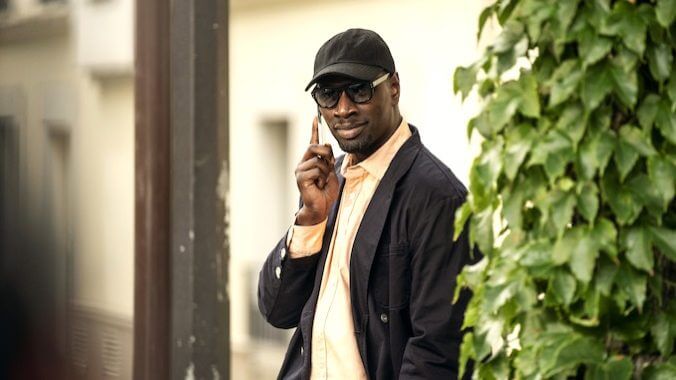Lupin Continues to Steal Hearts in a Thrilling Part 3
Photo Courtesy of Netflix
There’s something about the larger-than-life characters from a specific era of European crime novels that keeps resonating with audiences, as is evidenced by the persistent influence of figures like Sherlock Holmes more than a century after his debut. Fitting into this trend, Netflix’s take on Maurice Leblanc’s gentleman thief Arsène Lupin shot to the top of the streamer’s charts when it came out in 2021, becoming the most-watched non-English series on the platform at the time (although Squid Game would shatter this record later that year).
At the heart of this new Lupin’s success was that it modernized the slickness of old-school caper stories to deliver fun narrative sleights of hand alongside compelling familial drama, all anchored by Omar Sy’s deeply charismatic performance. Thankfully, Part 3 picks up right where its predecessor left off. Between its smartly crafted intrigue and well-portrayed exploration of our hero’s fractured relationships, each of its seven episodes are packed with excitement.
This season takes place a year from where we left off: after narrowly escaping Paris and successfully entrapping Pellegrini, the man who framed his father for theft, the Lupin-inspired master thief Assane Diop (Omar Sy) is in hiding. However, as the news cycle obsesses over his exploits, he realizes his fame is negatively affecting the family he was forced to leave behind, including his wife Claire (Ludivine Sagnier) and his son Raoul (Etan Simon). Compelled to do right by them, he returns to Paris for what he hopes will be his last job. Reuniting with his best friend Benjamin (Antoine Gouy), the two concoct a scheme that should fix Diop’s personal problems and let him right a previous botched assignment, the theft of France’s Black Pearl, in one fell swoop. But things don’t exactly go as planned, and our modern-day master of disguise is visited by a ghost of his past who threatens to unravel everything.
-

-

-

-

-

-

-

-

-

-

-

-

-

-

-

-

-

-

-

-

-

-

-

-

-

-

-

-

-

-

-

-

-

-

-

-

-

-

-

-








































